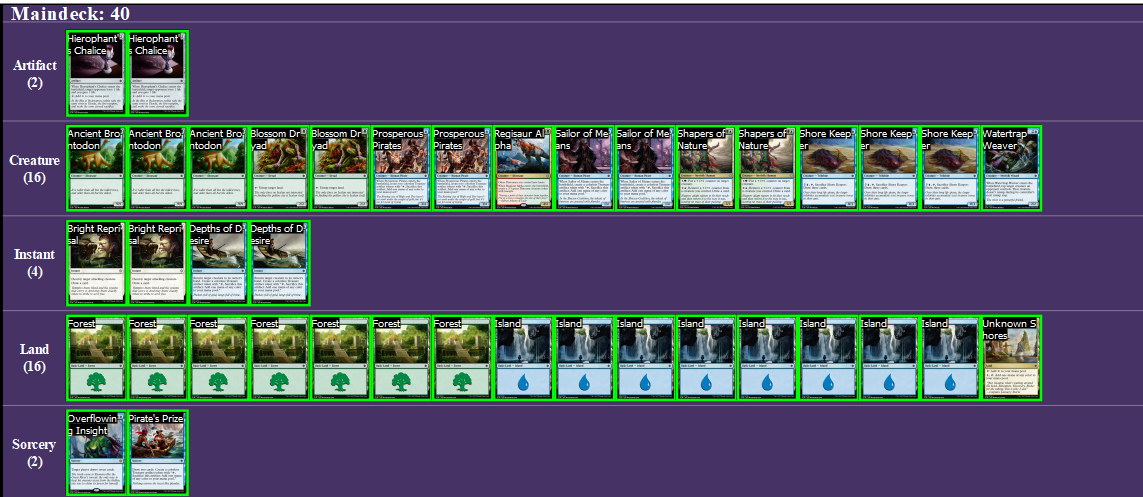Just out of curiosity... do other people find the lack of consistency on that matter to be something of a flaw of the design of the game, or no?
Mana is one of Magic's best design choices, I'd say. It's central to the game's flow, and it allows for interesting and varied decision-making. That comes up first and foremost in deckbuilding, but it also creates space for things like tempo choices (land order, taplands/fetchlands, rituals, land destruction), ramp (dorks, rocks, rampant growths), and other interaction (retrace, molten vortex, spell lands/utility lands, etc.).
The one thing I did think, though... is what about something like make a seperate land deck that you could tinker as you will, and you always get a single, seperate, additional draw from that each turn? From there, I'd assume you'd end up decreasing your normal deck size, and probably tweak starting hand size or something, and you'd in turn have a quicker paced game, probably.
[...]
Actually, are there any actually functional (aka not super easy to break) alternate rulesets that people have come up with to make the whole "land-screwed" "non-land-screwed" thing less of an issue?
This solution has been tried at least twice, and I'm sure there are other similar implementations I'm forgetting.
There's the Magic variant format "Hermit Druid", named after the Tempest card. It's normal Magic with the addition that each upkeep, you get a free Hermit Druid activation: you find the topmost basic land card in your library and put it into play. (For balance reasons, I believe it's most often played with a shuffle afterwards rather than putting the nonland revealed cards into your yard like Hermit Druid should do.)
It's a fun variant, but it quickly becomes apparent how it warps the game; draw power is even stronger than usual, and interactive spells can pretty much never keep up with creatures, whether that's because they're too big or too wide. However, compared to the next option, it does have the advantage of the land cards still being in your deck, which allows some of normal Magic's decision-making to leak into this format.
Secondly, there's the TCG "Force of Will". It's more or less anime Magic, with a few differences. You build a 40-card main deck with no lands, and a 10-20 card deck that may only contain lands. You never draw from the land deck; instead, you start the game with a "Ruler" card in play (sort of like a Magic vanguard), and every Ruler has the ability to tap to put the top card of your land deck into play. Because your ruler has other abilities and can even flip to become a creature, each game eventually reaches a point where, depending on your curve, it becomes better to stop playing lands and start using your ruler in other ways.
Because there's very little randomness to your resource development (only the order your land deck ends up shuffled in), each game has much less variance, and things feel a bit more solitaire-like. As you expected, the starting hand size is reduced to compensate, but it inevitably leads to a faster-paced game in which control strategies are less viable. Still, the minor deckbuilding element of colour balance in your main and land decks is worth something, and the fact that land drops come at a tradeoff makes it more interesting than Hearthstone or similar guaranteed-development systems.
I love TCGs and go out of my way to try as many different games as possible. In each and every case, the resource system ends up being one of the factors that most strongly influences the game's staying power, its ability to remain fun for many matches. I personally have yet to find something that tops Magic, but that doesn't stop me from being interested in trying!

